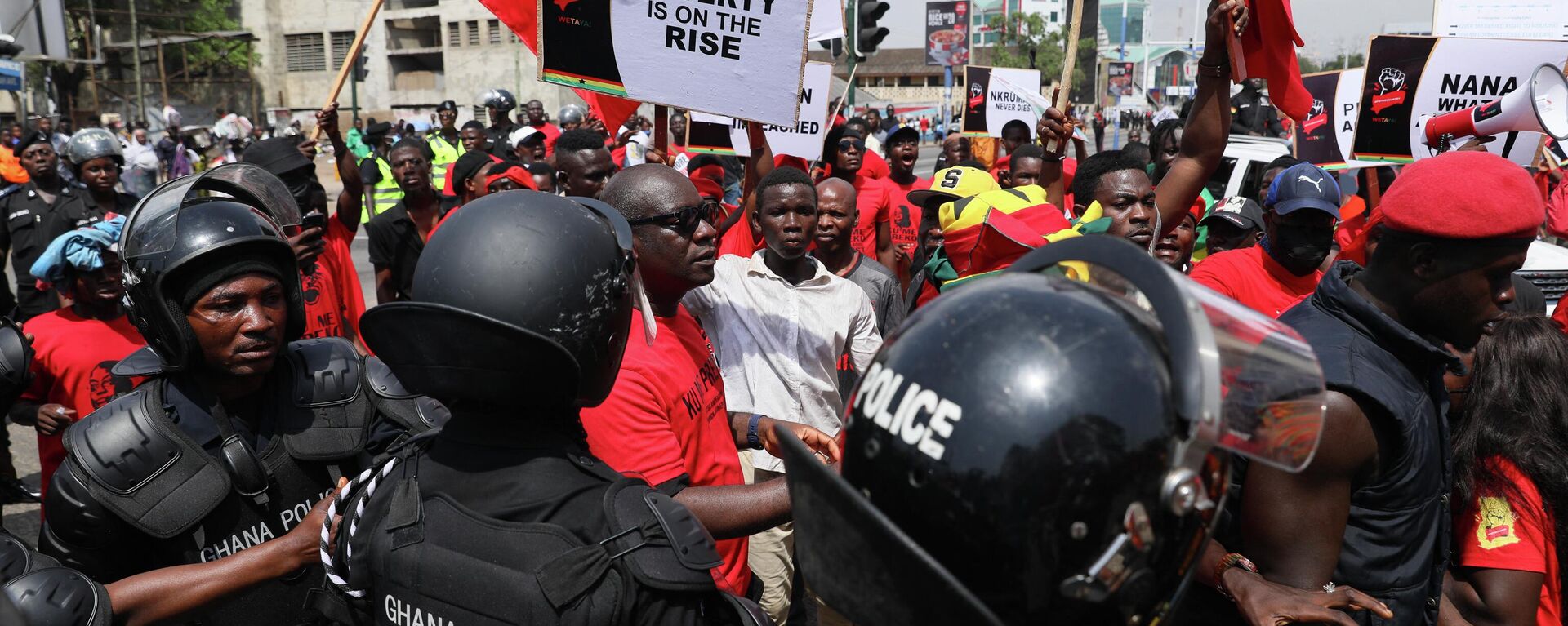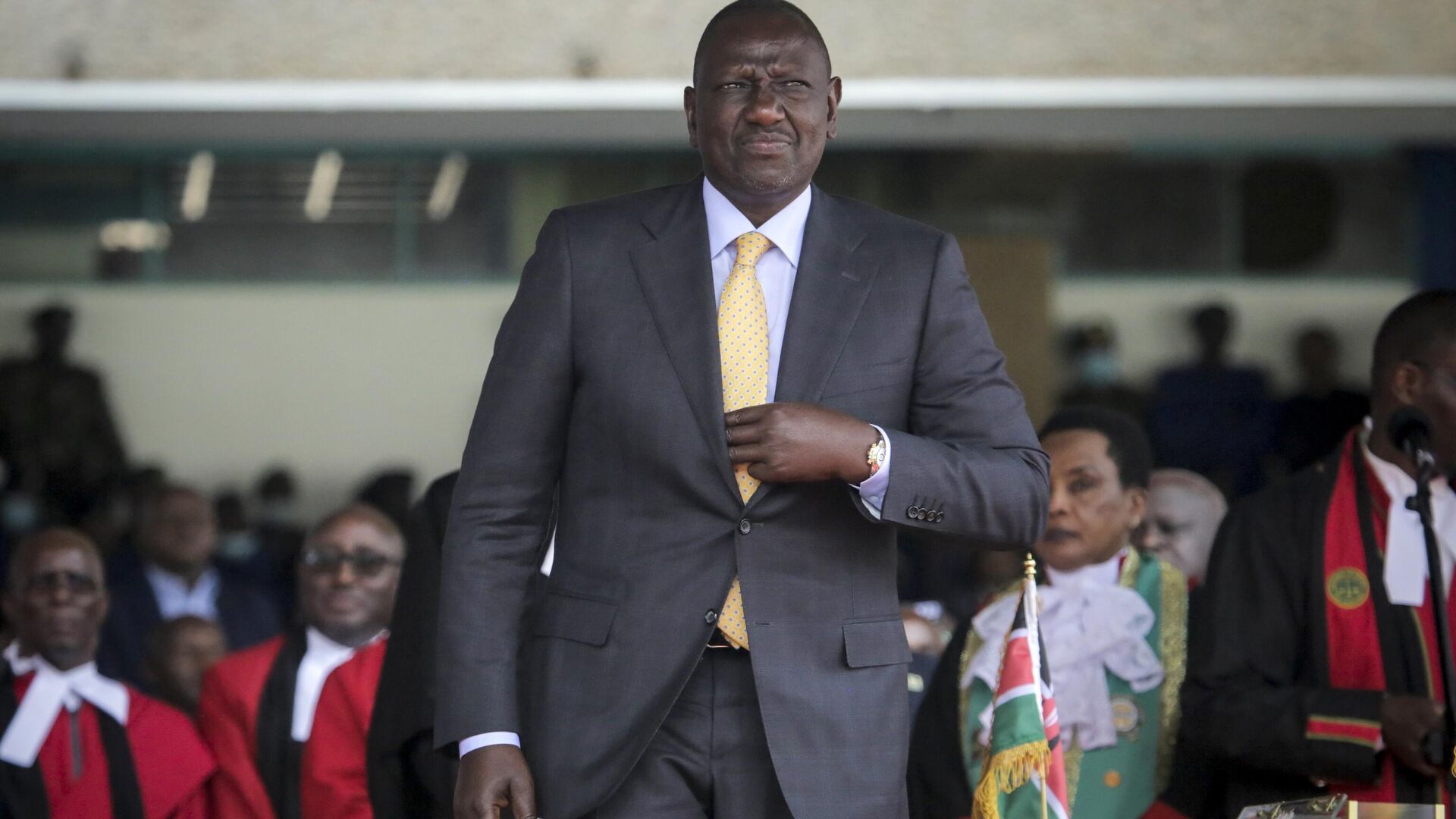https://sputnikglobe.com/20221111/kenyas-government-to-cut-borrowing-because-of-budget-deficit-reduction-plans-1103988603.html
Kenya’s Government to Cut Borrowing Because of Budget Deficit Reduction Plans
Kenya’s Government to Cut Borrowing Because of Budget Deficit Reduction Plans
Sputnik International
In this article you will learn why Kenya’s Government wants to reduce budget deficit
2022-11-11T07:39+0000
2022-11-11T07:39+0000
2022-11-23T11:37+0000
africa
kenya
william ruto
imf
budget
loans
east africa
https://cdn1.img.sputnikglobe.com/img/07e6/0b/0a/1103989726_0:160:3073:1888_1920x0_80_0_0_020402338d9f5c122a8a1b713b11a00b.jpg
Kenya's government will reduce borrowing to decrease the budget deficit, high-ranking officials from the country said on Thursday.Kenya's Finance Minister Njuguna Ndung'u also spoke about the country’s plans to influence public finances.It was decided to reduce the budget deficit after a staff-level agreement was reached on Tuesday with the International Monetary Fund to provide the country with new financing.An IMF press release states that Kenya will have access to about $433Mln in financing once all stages of the agreement are completed.Loans from the IMF come with stringent conditions, prescribed by the international lender. The conditions are often presented as belt-tightening measures, with the aim to introduce fiscal discipline into the economy by increasing revenues and cutting spending.However, some experts argue that the actual purpose of these loans is to effect major and fundamental neo-liberal policy changes, such as privatization, establishment of free markets and deregulation.In mid-September, the IMF forced Kenya to scrap fuel subsidies, resulting in prices hitting a new record.In October, Kenya's President William Ruto said that the government intends to increase annual revenue collection by a third through expanding the tax base.
https://sputnikglobe.com/20221106/anti-imf-protests-hit-ghanas-capital-accra-1103830392.html
africa
kenya
east africa
Sputnik International
feedback@sputniknews.com
+74956456601
MIA „Rossiya Segodnya“
2022
News
en_EN
Sputnik International
feedback@sputniknews.com
+74956456601
MIA „Rossiya Segodnya“
Sputnik International
feedback@sputniknews.com
+74956456601
MIA „Rossiya Segodnya“
kenya to borrow less, kenya to decrease borrowing, kenya to reduce budget deficit, kenya to decrease expences, kenya and imf
kenya to borrow less, kenya to decrease borrowing, kenya to reduce budget deficit, kenya to decrease expences, kenya and imf
Kenya’s Government to Cut Borrowing Because of Budget Deficit Reduction Plans
07:39 GMT 11.11.2022 (Updated: 11:37 GMT 23.11.2022) The International Monetary Fund (IMF) - with which the Kenyan government is cooperating just now - has form when it comes to insisting that countries which receive a bail-out align their public finances with neo-liberal free-market policies such as eliminating subsidies and regulation and cutting government budgets.
Kenya's government will reduce borrowing to decrease the budget deficit, high-ranking officials from the country said on Thursday.
"We must cut our appetite for borrowing," Ndindi Nyoro, the chairman of parliament's budget panel pointed out.
Kenya's Finance Minister Njuguna Ndung'u also
spoke about the country’s plans to influence public finances.
"We intend to contain growth in non-priority expenditure to reduce the fiscal deficit," he said.
It was decided to
reduce the budget deficit after a staff-level agreement was reached on Tuesday with the International Monetary Fund to provide the country with new financing.

6 November 2022, 14:01 GMT
An IMF press release
states that Kenya will have access to about $433Mln in financing once all stages of the agreement are completed.
Loans from the IMF come with stringent conditions, prescribed by the international lender. The conditions are often presented as belt-tightening measures, with the aim to introduce fiscal discipline into the economy by increasing revenues and cutting spending.
However, some experts
argue that the actual purpose of these loans is to effect major and fundamental neo-liberal policy changes, such as privatization, establishment of free markets and deregulation.
In mid-September, the IMF forced Kenya to scrap fuel subsidies, resulting in prices hitting a new record.
In October, Kenya's President William Ruto said that the government intends to increase annual revenue collection by a third through expanding the tax base.



